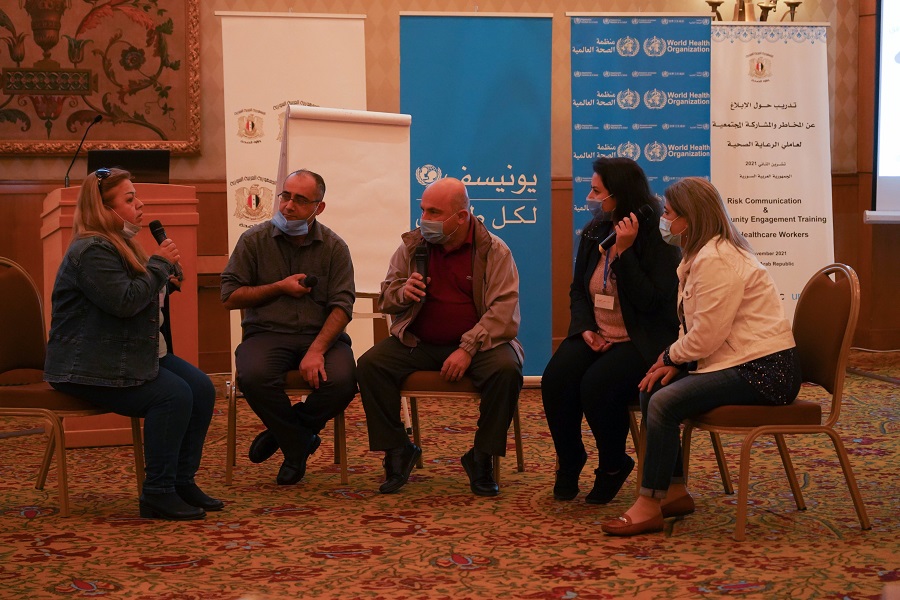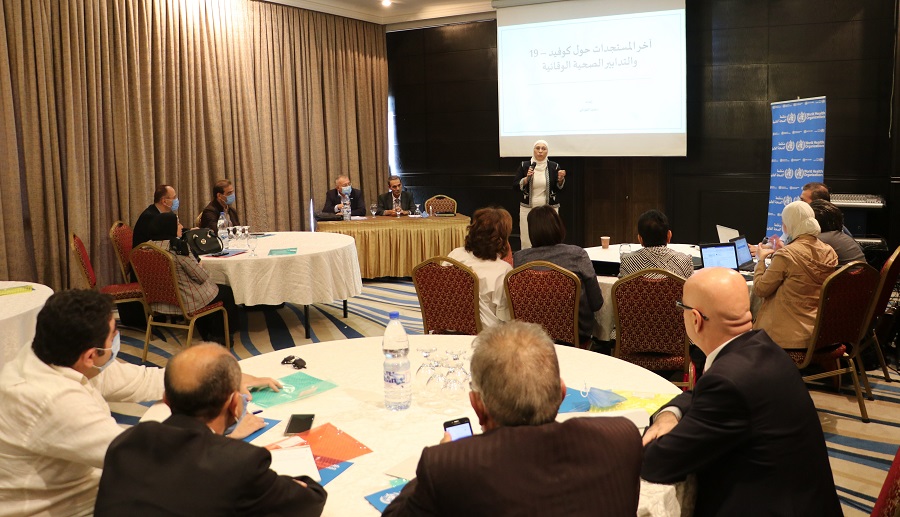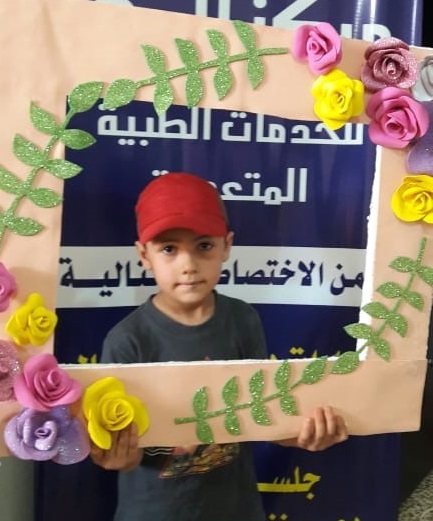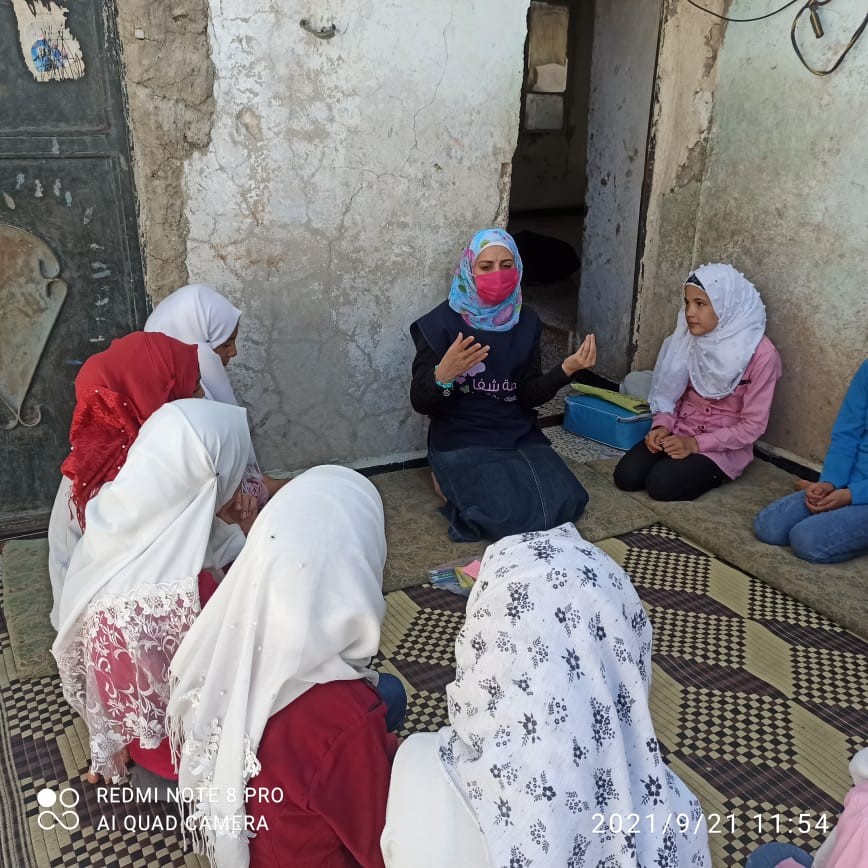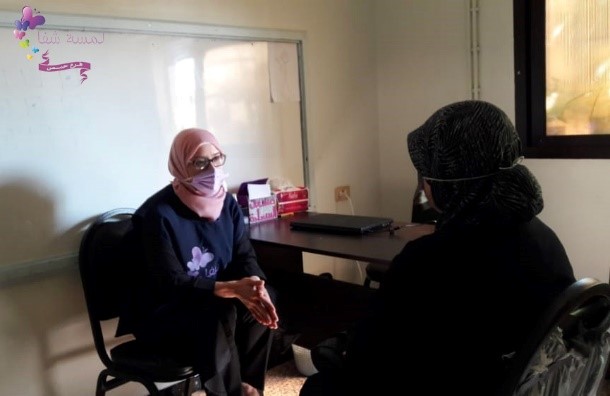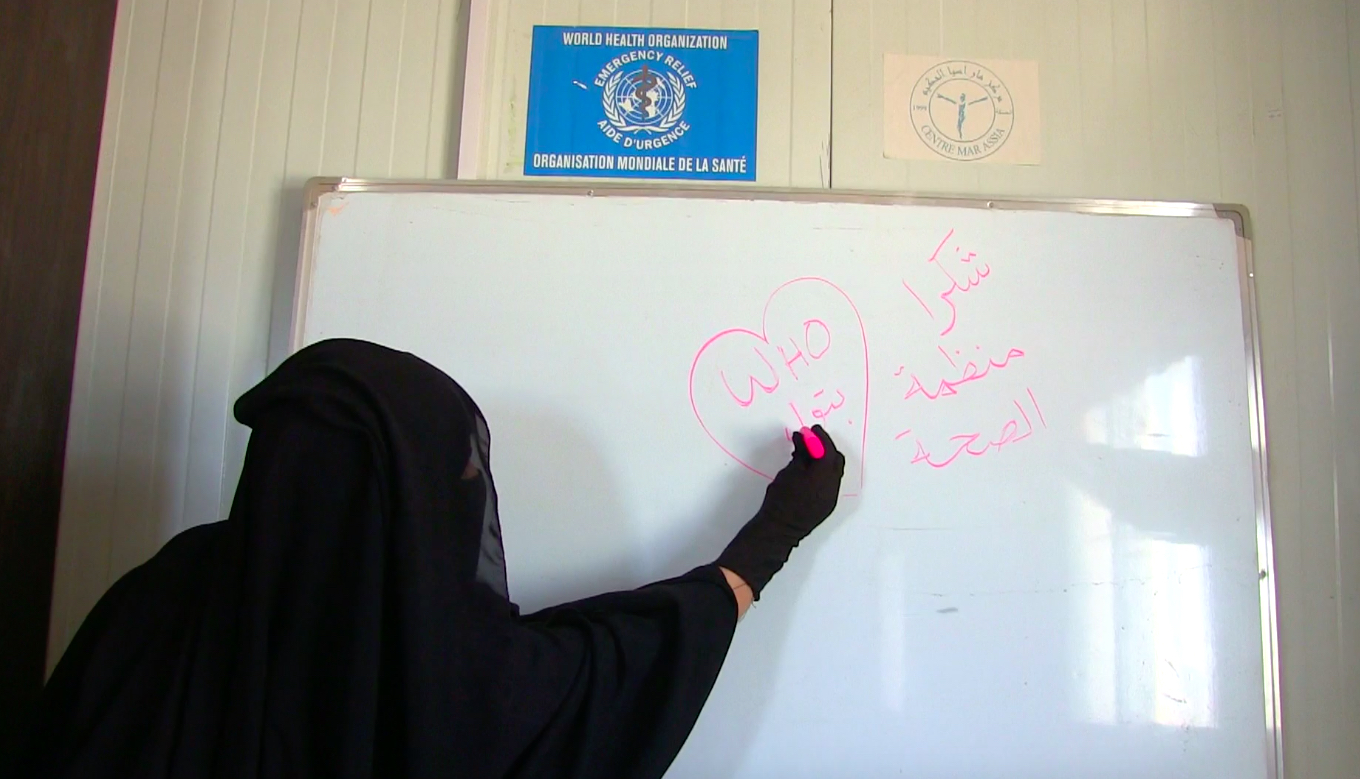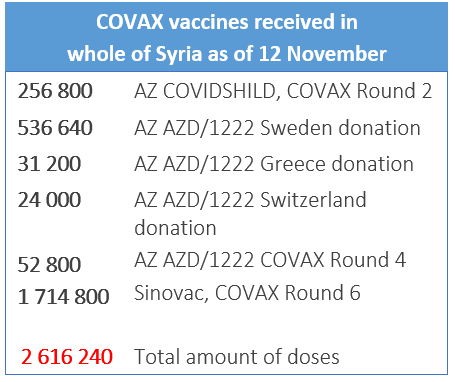 Summary
Summary
On 5 November 2021 Syria received 1 356 000 doses of Sinovac through the COVAX Facility. The same round allocation of 358 800 doses of Sinovac were delivered to northwest on 3 September to increase availability of vaccines to respond to emerging needs of the population. After the first consignment received in April this year, this batch is the largest to arrive via COVAX and represents 66% of all COVAX deliveries. Vaccines will be administered as part of the ongoing national vaccination campaign across the country. Syria also received 115 200 doses of AstraZeneca (AZ) vaccine supported by Sweden through the COVAX Facility on 6 November. On 4 November 108 000 doses of AstraZeneca were delivered to northwest Syria through COVAX.
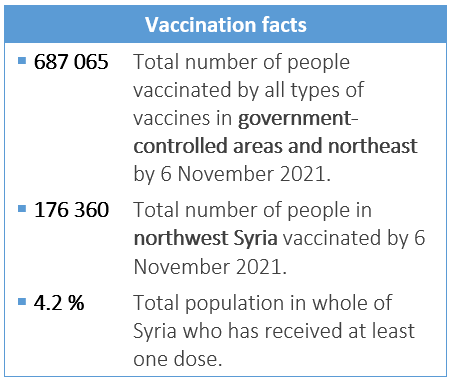 As of 12 November, 2 616 240 doses have been delivered through COVAX and 1 345 000 through bilateral agreements – enough to cover 10.2% of the population. Over 7.3 million doses of vaccines are expected to be delivered in the nearest future through COVAX, which is sufficient to cover additional 27.7% of the population.
As of 12 November, 2 616 240 doses have been delivered through COVAX and 1 345 000 through bilateral agreements – enough to cover 10.2% of the population. Over 7.3 million doses of vaccines are expected to be delivered in the nearest future through COVAX, which is sufficient to cover additional 27.7% of the population.
Vaccination strategies
Two different vaccination strategies were applied in various parts of the country. In northwest Syria, the first batch of vaccines was used for the first dose vaccination, while in government-controlled areas and in northeast Syria (where vaccination is administered as part of the national immunization programme) the total quantity of available vaccines from the first batch were equally split into two parts to rollout the first and the second dose vaccination accordingly. With the second and consequent batches sent to government-controlled areas, northeast and northwest Syria, the strategy is to use all available vaccines since new consignments are expected in the nearest future.
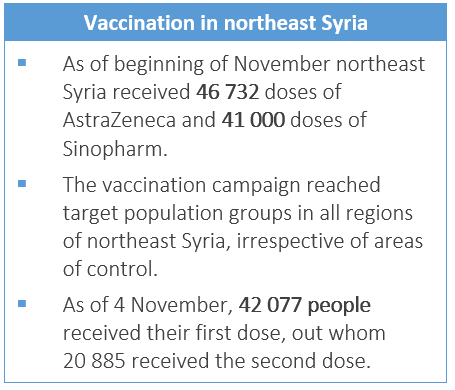 Priority groups
Priority groups
As per the National Deployment and Vaccination Plan, the vaccination priority groups include high-risk population groups such as: 1) health workers; 2) the elderly; and 3) people with co-morbidities. Since September 2021 all adults over 18 have been offered the vaccine.
Challenges
Arrival of vaccines late in a year makes it difficult for timely implementation of vaccination putting pressure on already fragile health system. However, the more vaccines are supplied the closer we are to achieve the national target of 20% of vaccination coverage by end of 2021, to reduce severe complications and deaths from COVID-19 and combat the pandemic.





